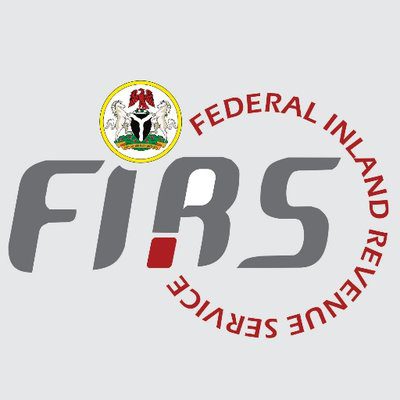Lagos, Nigeria – In a significant step toward modernizing Nigeria’s tax administration system, the Federal Inland Revenue Service (FIRS) has officially certified eTranzact International Plc as a key partner in the nationwide rollout of its electronic invoicing (e-invoicing) initiative. The announcement, made on September 5, 2025, underscores the government’s commitment to leveraging technology to enhance tax compliance, boost revenue collection, and streamline business processes in Africa’s largest economy. As Nigeria grapples with fiscal challenges and seeks to diversify its revenue base, the partnership with eTranzact marks a pivotal moment in the country’s journey toward a more transparent and efficient tax ecosystem.
The certification of eTranzact, a leading Nigerian financial technology (fintech) company, positions it as a critical player in the implementation of the FIRS’s e-invoicing system, which aims to digitize tax-related transactions and reduce revenue leakages. This move is part of a broader strategy to modernize Nigeria’s economy, improve ease of doing business, and align with global best practices in tax administration. The initiative has been met with optimism by stakeholders in the public and private sectors, though it also raises questions about implementation challenges, technological adoption, and the implications for businesses and taxpayers across the country.
Background: Nigeria’s Tax Administration Challenges
Nigeria, with a population of over 200 million and a GDP of approximately $440 billion, is Africa’s largest economy. However, its tax-to-GDP ratio, estimated at around 8%, is one of the lowest in the world, compared to the global average of 15-20% for developing economies. This low ratio reflects longstanding challenges in tax administration, including inefficiencies, widespread tax evasion, and reliance on oil revenue, which accounts for nearly 70% of government income. The volatility of global oil prices has exposed the fragility of Nigeria’s fiscal framework, prompting the government to prioritize non-oil revenue sources as part of its economic diversification strategy.
The FIRS, Nigeria’s primary tax authority, has been at the forefront of efforts to reform the tax system. Under the leadership of Executive Chairman Zacch Adedeji, the agency has introduced several initiatives to enhance revenue collection, including the TaxPro Max platform, a digital tax filing and payment system, and stricter enforcement measures. These efforts have yielded results, with the FIRS reporting a 30% increase in tax revenue for the first half of 2025 compared to the same period in 2024. Despite these gains, the agency continues to face challenges such as low tax compliance, particularly among small and medium-sized enterprises (SMEs), and inefficiencies in manual invoicing processes that enable underreporting of taxable transactions.
The introduction of e-invoicing is seen as a game-changer in addressing these issues. E-invoicing involves the digital creation, transmission, and storage of invoices, allowing for real-time tracking of transactions and automated tax reporting. By reducing reliance on paper-based systems, e-invoicing aims to improve transparency, curb tax evasion, and simplify compliance for businesses. The FIRS’s decision to partner with eTranzact reflects its recognition of the private sector’s role in driving technological innovation and supporting government reforms.
eTranzact: A Trusted Fintech Partner
eTranzact International Plc, founded in 2003, is one of Nigeria’s pioneering fintech companies, known for its expertise in electronic payment solutions, mobile banking, and digital transaction processing. The company has built a reputation for providing secure and scalable platforms that facilitate seamless financial transactions for banks, businesses, and government agencies. With a presence in Nigeria, Ghana, and other African countries, eTranzact has played a significant role in advancing financial inclusion and digital transformation across the continent.
The FIRS’s certification of eTranzact as a key partner in the e-invoicing rollout highlights the company’s technological capabilities and its track record of delivering reliable solutions. According to a statement from the FIRS, eTranzact was selected following a rigorous evaluation process that assessed its technical expertise, infrastructure, and ability to integrate with the agency’s digital systems. The certification positions eTranzact to provide e-invoicing solutions to businesses across various sectors, ensuring compliance with the FIRS’s requirements and facilitating seamless tax reporting.
In a press release, eTranzact’s Managing Director, Olaniyi Toluwalope, expressed pride in the company’s role in the initiative. “We are honored to be certified by the FIRS as a key partner in this transformative project,” Toluwalope said. “Our e-invoicing solution is designed to simplify compliance for businesses while supporting the government’s efforts to enhance revenue generation. We are committed to delivering a robust and user-friendly platform that meets the needs of all stakeholders.”
The E-Invoicing Initiative: Objectives and Features
The FIRS’s e-invoicing initiative is part of a global trend toward digital tax administration, with countries like Brazil, Mexico, and Italy successfully implementing similar systems. The initiative aims to address several challenges in Nigeria’s tax system, including:
Reducing Tax Evasion: Manual invoicing systems are prone to manipulation, allowing businesses to underreport sales or issue fraudulent invoices. E-invoicing enables real-time monitoring of transactions, making it harder for businesses to evade taxes.
Improving Transparency: By digitizing invoices, the FIRS can track taxable transactions more effectively, ensuring that businesses report accurate sales data and remit the appropriate taxes, such as Value Added Tax (VAT).
Enhancing Efficiency: E-invoicing eliminates the need for paper-based processes, reducing administrative costs for businesses and the FIRS. It also streamlines tax audits and compliance checks.
Boosting Revenue: By closing loopholes and improving compliance, the FIRS expects e-invoicing to significantly increase non-oil revenue, supporting the government’s fiscal sustainability goals.
The e-invoicing system requires businesses to generate digital invoices that are transmitted to the FIRS’s platform in real time. These invoices must include specific details, such as the buyer’s and seller’s tax identification numbers, transaction amounts, and applicable tax rates. The system is designed to integrate with existing accounting software, allowing businesses to automate tax reporting and reduce manual errors.
eTranzact’s role in the rollout involves providing a platform that enables businesses to create, manage, and transmit e-invoices seamlessly. The company’s solution is expected to include features such as secure data encryption, user-friendly interfaces, and compatibility with the FIRS’s TaxPro Max platform. Additionally, eTranzact will offer training and technical support to businesses, particularly SMEs, to ensure smooth adoption of the system.
Economic and Policy Implications
The certification of eTranzact and the broader e-invoicing initiative have significant implications for Nigeria’s economy and fiscal policy. By enhancing tax compliance, the government hopes to increase its revenue base, reducing reliance on external borrowing and volatile oil revenues. The FIRS has projected that e-invoicing could boost VAT collections by 20-30% within the first two years of implementation, providing additional funds for critical sectors like infrastructure, healthcare, and education.
The initiative also aligns with Nigeria’s National Development Plan (2021-2025), which prioritizes digital transformation as a driver of economic growth. By leveraging technology to modernize tax administration, the government is signaling its commitment to creating a more business-friendly environment. The e-invoicing system is expected to reduce the administrative burden on businesses, allowing them to focus on growth and innovation.
However, the rollout of e-invoicing is not without challenges. Nigeria’s digital infrastructure, while improving, remains uneven, with many rural areas lacking reliable internet access. SMEs, which account for over 80% of businesses in Nigeria, may face difficulties adopting e-invoicing due to limited technological expertise and financial resources. To address these concerns, the FIRS and eTranzact have pledged to provide affordable solutions and extensive support, including workshops and helplines, to ensure widespread adoption.
Another challenge is public perception. Previous tax reforms in Nigeria, such as the introduction of higher VAT rates, have faced resistance from businesses and consumers, who argue that they increase the cost of living. The FIRS will need to communicate the benefits of e-invoicing clearly, emphasizing its role in reducing tax evasion and creating a level playing field for compliant businesses.
The Role of Fintech in Nigeria’s Economic Transformation
The certification of eTranzact underscores the growing importance of Nigeria’s fintech sector in driving economic transformation. Over the past decade, Nigeria has emerged as a hub for fintech innovation, with companies like Flutterwave, Paystack, and Interswitch leading the charge. These firms have revolutionized payment systems, financial inclusion, and digital commerce, positioning Nigeria as a leader in Africa’s fintech landscape.
eTranzact’s involvement in the e-invoicing initiative highlights the strategic role of fintech in supporting government reforms. By providing scalable and secure solutions, fintech companies can bridge the gap between public policy goals and private sector capabilities. The partnership with the FIRS also demonstrates the potential for collaboration between the government and private sector to address systemic challenges and drive sustainable development.
The fintech sector’s growth has been fueled by Nigeria’s young and tech-savvy population, increasing smartphone penetration, and government policies promoting digitalization. However, challenges such as cybersecurity risks, regulatory uncertainties, and infrastructure gaps remain. The success of the e-invoicing initiative will depend on eTranzact’s ability to deliver a reliable and secure platform while navigating these challenges.
Stakeholder Reactions and Expectations
The announcement of eTranzact’s certification has been met with widespread approval from stakeholders in Nigeria’s business and technology sectors. The Lagos Chamber of Commerce and Industry (LCCI) described the initiative as a “welcome development” that would enhance transparency and reduce the cost of compliance for businesses. The LCCI urged the FIRS to ensure that the e-invoicing system is user-friendly and accessible to SMEs, which form the backbone of Nigeria’s economy.
Technology experts have also praised the partnership, noting that eTranzact’s expertise in digital payments positions it well to deliver a robust e-invoicing solution. “This is a significant milestone for Nigeria’s digital economy,” said Tunde Adeola, a Lagos-based tech analyst. “eTranzact’s involvement ensures that the system will be secure, scalable, and tailored to the needs of Nigerian businesses.”
However, some stakeholders have expressed concerns about the pace of implementation and the potential impact on small businesses. The National Association of Small and Medium Enterprises (NASME) called for a phased rollout and subsidies for SMEs to acquire the necessary technology. “While we support the move to e-invoicing, the government must ensure that small businesses are not left behind,” said NASME President, Chinyere Almona.
Global Context: E-Invoicing as a Best Practice
Nigeria’s adoption of e-invoicing aligns with global trends in tax administration. Countries like Brazil, Mexico, and Italy have successfully implemented e-invoicing systems, resulting in significant increases in tax revenue and compliance. For example, Brazil’s e-invoicing program, introduced in 2008, has been credited with reducing tax evasion by 20% and increasing VAT collections by billions of dollars annually.
These international examples provide valuable lessons for Nigeria. A key factor in their success has been stakeholder engagement, including extensive training for businesses and robust technical support. Nigeria will need to adopt a similar approach, ensuring that businesses, particularly SMEs, are adequately prepared for the transition. Collaboration with private sector partners like eTranzact will be critical in achieving this goal.
The Path Forward: Opportunities and Challenges
The certification of eTranzact as a key partner in the FIRS’s e-invoicing rollout represents a significant opportunity to modernize Nigeria’s tax system and boost revenue generation. By leveraging technology, the government can address longstanding challenges such as tax evasion and inefficiencies, creating a more transparent and equitable fiscal environment. The initiative also has the potential to enhance Nigeria’s attractiveness as a destination for investment, as businesses benefit from streamlined processes and reduced compliance costs.
However, the success of the initiative will depend on several factors. First, the FIRS and eTranzact must ensure that the e-invoicing system is accessible and affordable for businesses of all sizes, particularly SMEs. Second, the government must invest in digital infrastructure to ensure reliable internet access and connectivity, especially in rural areas. Third, effective communication and stakeholder engagement will be critical to building trust and encouraging adoption.
The initiative also presents an opportunity to strengthen Nigeria’s fintech ecosystem. By showcasing eTranzact’s capabilities, the FIRS is sending a signal to other fintech companies that there are opportunities for collaboration with the public sector. This could spur further innovation and investment in the sector, driving economic growth and job creation.
Conclusion
The FIRS’s certification of eTranzact as a key partner in Nigeria’s e-invoicing rollout is a landmark development in the country’s efforts to modernize its tax system and enhance revenue generation. By leveraging eTranzact’s technological expertise, the FIRS aims to create a more transparent, efficient, and compliant tax ecosystem, aligning with global best practices and supporting Nigeria’s economic diversification goals. The initiative holds immense promise for improving fiscal sustainability, reducing tax evasion, and fostering a business-friendly environment.
However, the success of the e-invoicing system will require careful planning, robust implementation, and inclusive stakeholder engagement. The FIRS and eTranzact must address challenges such as digital infrastructure gaps, SME adoption, and public perception to ensure that the initiative delivers on its potential. As Nigeria embarks on this transformative journey, the partnership with eTranzact serves as a testament to the power of public-private collaboration in driving economic progress and building a more prosperous future for all Nigerians.






